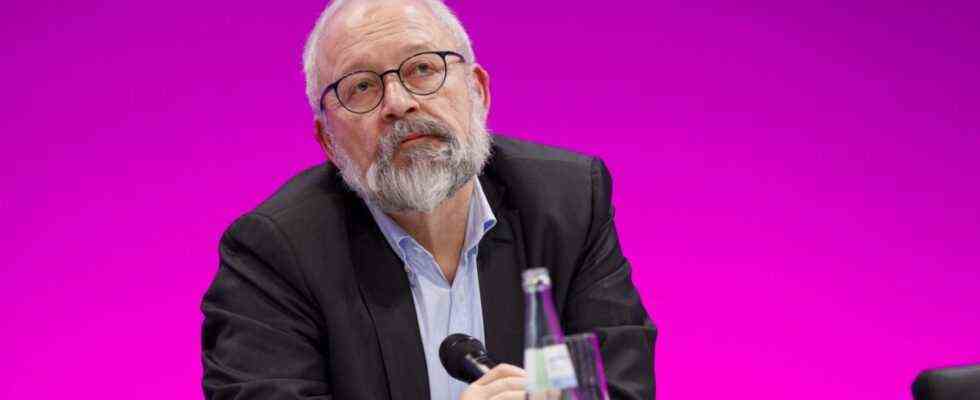Herfried Münkler, 69, was a little surprised that he of all people was invited to speak at the Munich Economic Debates by the Ifo Institute and the SZ business editorial team. The emeritus Politics Professor at the Humboldt University in Berlin is known far beyond his subject, he has doctorates and habilitation for several dozen scientists, his books, for example about Germany’s role in different centuries, are regularly bestsellers and translated into many languages - But economists, he says, would work very differently than political scientists: they would have huge amounts of numbers available that they could evaluate and that would give them a glimpse into the future. His guild, on the other hand, has to be content with scenarios: If that, then this.
The Munich economists, however, had no problem at all, as they wanted to know from the experienced political observer what he expected for the federal election and afterwards. Wohlan: In terms of party politics, Münkler is fairly certain that there will either be a green-red-yellow coalition – although, due to the current Baerbock problems, it is no longer certain that the Greens would provide the Chancellor in this constellation, it is always possible still. Or, even more likely, the longtime political observer Münkler sees a black-green coalition in which the Greens would then almost certainly only be junior partners. After all, for Münkler, for the first time in the history of the Federal Republic, they have the potential to decide the coalition question, for which the FDP in particular was previously known.
Of course, what the economic policy will look like in the post-Merkel era also depends on the concrete result of the election. There are four major challenges for Münkler: In addition to the return to the old economic strength from before Corona, these are the ecological restructuring of the country, digitization and the social balance that is required by these changes.
Scientifically and technically, Germany and Europe have to catch up, says Münkler – that is a condition for everything else
In terms of content, all four fields are crucially important – for Münkler, the main question is whether Germany and Europe will catch up with the USA and China on the digital fate of the world. To be successful in the scientific and technical upheaval is a prerequisite for achieving the other three goals: That can be recognized by those who think long-term and strategically. But that’s the way it is, stated Münkler, that many citizens do not think that way, but rather make their personal needs the main theme. It is therefore fairly certain, even if some opinion polls currently suggest something else that in the end many voters are primarily concerned with the question of whether and how the return to the old level of prosperity will succeed.
In his opinion, this topic will come to the fore in the hot phase of the election campaign in September and could ultimately decide the election. “Many people are exhausted,” says Münkler, and they therefore want to return to normality and not shoulder ecological renewal and the digital race to catch up first and foremost.
The discussion that followed was very much about China and its importance. For Münkler it is clear that China and the USA are the central leading countries of the present, followed by Russia (because of its military power based on nuclear weapons). He sees Europe, at best, in fourth place ahead of India. These states in the top group will look for coalition partners in the second row, militarily and strategically. This is how it is currently seen in the area of global vaccine supply, where the EU has not used its opportunities for Münkler. In the future, international power struggles and games will play a much greater role than before, when more and more rule-making should limit power.

